
The new Independent Commission for Reconciliation and Information Recovery (ICRIR), the central plank of the Government’s Act to deal with the legacy of the Northern Ireland Troubles, becomes operational on Wednesday.
The ICRIR was established by the Northern Ireland Troubles (Legacy and Reconciliation Act) 2023, although it operates independently of the Government.
The body will take on the remit to investigate hundreds of unresolved legacy deaths and cases of serious harm which happened before the signing of the Good Friday Agreement in 1998.
The PA news agency answers key questions around the new truth recovery body.
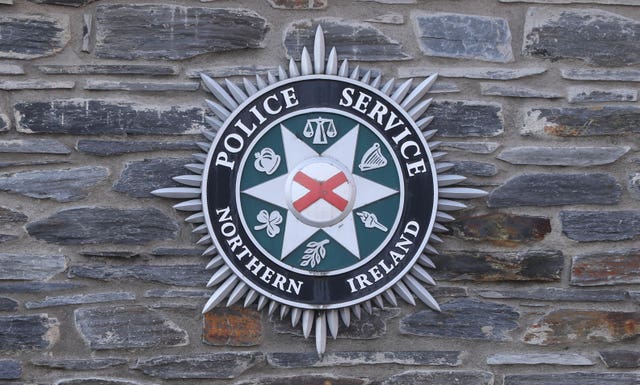
– What does this mean for investigations into Troubles cases?
The Police Service of Northern Ireland (or other relevant UK police forces) will no longer have responsibility for investigating unsolved crimes relating to the region’s troubled past. Those investigations will switch to the new commission.
Prosecutions that are ongoing will continue to conclusion. The Police Ombudsman will not take on any new investigations relating to Troubles incidents.
From May 1, new civil litigation will be barred and inquests into Troubles deaths which have not concluded oral hearings will be stopped.
A number of legacy inquests were moving through the coronial system in Northern Ireland and were unable to be completed before the guillotine date. Several more had been ordered but proceedings had not even begun.
The ICRIR can take over the probes in the unfinished inquests if a request is made to it.
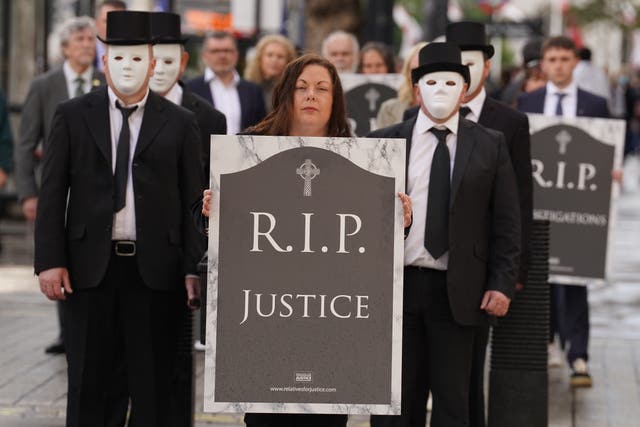
– Why is this all so controversial?
All of the main political parties in Northern Ireland, victims’ groups and organisations, and the Irish Government are opposed to the new arrangements.
Opponents of the Legacy Act have characterised it as an attempt to shut down access to truth and justice for Troubles victims. It has also been claimed that the legislation was motivated by the Government’s desire to stop prosecutions of military veterans who served in Northern Ireland.
There have been multiple protests staged against the new laws in Northern Ireland and London.
Just this week, Northern Ireland’s First Minister Michelle O’Neill said the legislation should be “binned”. She told the Stormont Assembly: “I think it is the collective will of all parties of the chamber that this legislation is horrific and it should be repealed immediately.”
The Labour Party previously said it would repeal the Act if it came to power and wants to return to the legacy principles set out in the Stormont House Agreement.
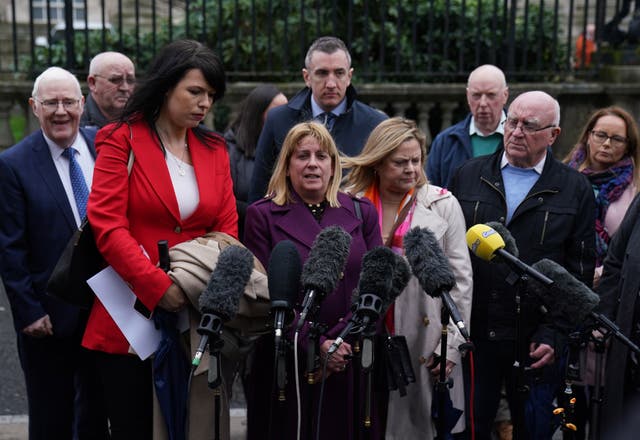
– Have there been legal challenges?
Yes. A number of Troubles victims launched judicial review proceedings when the Government Bill became law. The cases were combined into one challenge which was heard at Belfast High Court.
Delivering his judgment earlier this year, Mr Justice Colton ruled that one of the central parts of the Act, the provision for conditional immunity from prosecution for Troubles offences, was unlawful and struck it out.
However, he also ruled that the ICRIR is able to carry out human rights-compliant investigations and is independent.
The Government is appealing against the finding over conditional immunity.
Separately, the Irish Government has launched an interstate legal case against the UK, claiming that the new laws breach the European Convention on Human Rights (ECHR). That case is still to be heard.
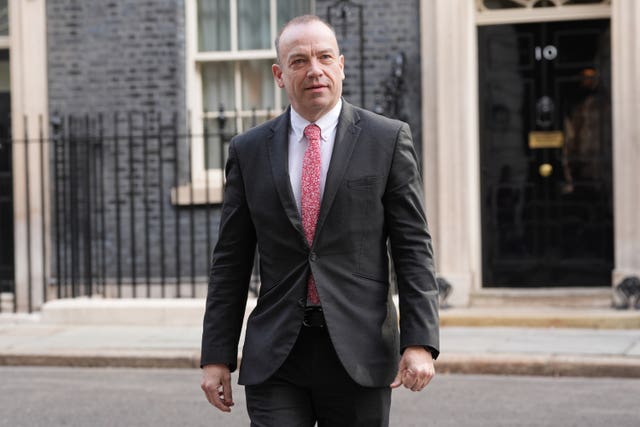
– What has the Government said?
When the legislation was first unveiled in 2021, former prime minister Boris Johnson said the proposals would allow Northern Ireland to “draw a line under the Troubles”.
The Government introduced multiple amendments as the Bill travelled through Parliament, leading Northern Ireland Secretary Chris Heaton-Harris to state that he was confident the final version was human rights compliant.
The Government pointed out that the current system was not providing justice or access to truth to the vast majority of Troubles victims. It has stated that the ICRIR will be able to provide more answers to more people about what happened to their loved ones.
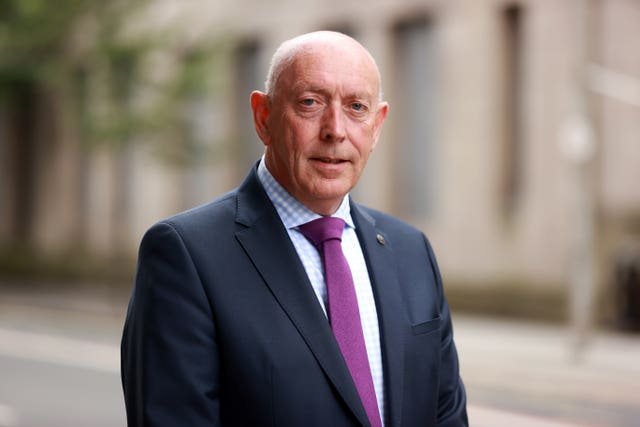
– Who works on the ICRIR?
Its chief commissioner is the former Lord Chief Justice of Northern Ireland, Sir Declan Morgan. When he was the region’s top judge he established the Legacy Inquest Unit with the intention of hearing all outstanding legacy inquests within a five-year timeframe. He has said he is convinced the ICRIR can be a success despite the widespread opposition.
Peter Sheridan will be the commissioner for investigations on the ICRIR. A former police officer, Mr Sheridan served with the RUC and, when he retired from policing, was the most senior Catholic officer in the PSNI.
After he left the police he became head of the peace-building organisation Co-operation Ireland and was instrumental in bringing about the historic handshake between the the late Queen and former IRA commander Martin McGuinness in 2012.
When he was appointed to the ICRIR last year, Mr Sheridan conceded some people would be opposed because of his past service in the RUC but insisted his motivation in taking up the role is to attempt to spread peace and reconciliation.
– How will the ICRIR operate?
The commission can only investigate a case when it is asked to do so. This will usually be done by the family member of a Troubles victim (although in some cases the Attorney General, Secretary of State or a coroner can make a referral).
There will be three stages to any investigation – support, information recovery and the delivery of a findings report.
There are three types of investigation. A focused investigation will aim to promptly deliver a finding based on the balance of probabilities in response to a specific request.
A liability investigation will seek to establish all the circumstances of a death and will be capable of leading to a referral for prosecution. A findings report would only be delivered where it becomes apparent a prosecution cannot be supported.
A culpability investigation will attempt to establish all the circumstances in a case where it is judged no prosecution may be possible. The commission could use its statutory powers to seek answers in existing records, including access to sensitive material.
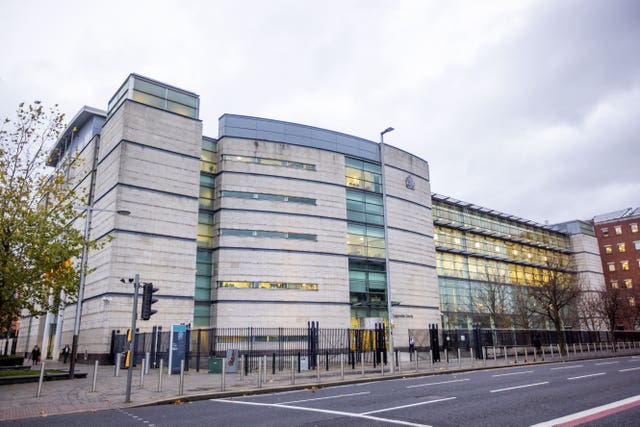
– What powers does the ICRIR have?
The commission can require public authorities and private individuals to hand over relevant information.
Mr Sheridan can designate officers with police powers where there is an identified requirement.
In any investigation, the commission can apply a mechanism to test evidence called Enhanced Inquisitorial Proceedings (EIP), which may take the form of public hearings in some cases.
– What happens next?
In the first weeks of May, a telephone and email service will be open to the public to express interest in having their case investigated by the commission by registering their details.
From late May, face-to-face meetings between a case support worker and those who have registered will begin to explore more information about the person’s case.
Pre-investigative work will begin from mid to late June and requests for investigation may begin being accepted during July. Operation sites will be located in London and Belfast.
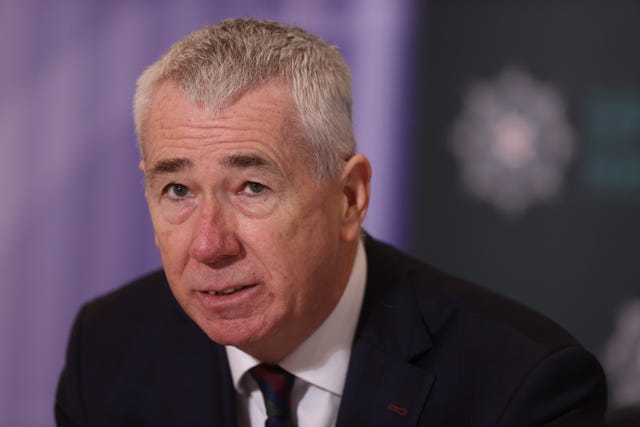
– Is this the end of Troubles prosecutions?
The ICRIR insists that it has the power to refer cases for prosecution. However, the difficulty in obtaining evidence that will support a criminal prosecution relating to events that occurred several decades ago will remain.
Some of the investigating approaches used by the ICRIR are based on the Operation Kenova model. This was an investigation into Stakeknife, the British Army’s top agent inside the IRA.
As a result of the Kenova probe, some 32 people were considered for prosecution but the Public Prosecution Service in Northern Ireland found there was insufficient evidence to pursue any cases.


Comments: Our rules
We want our comments to be a lively and valuable part of our community - a place where readers can debate and engage with the most important local issues. The ability to comment on our stories is a privilege, not a right, however, and that privilege may be withdrawn if it is abused or misused.
Please report any comments that break our rules.
Read the rules here